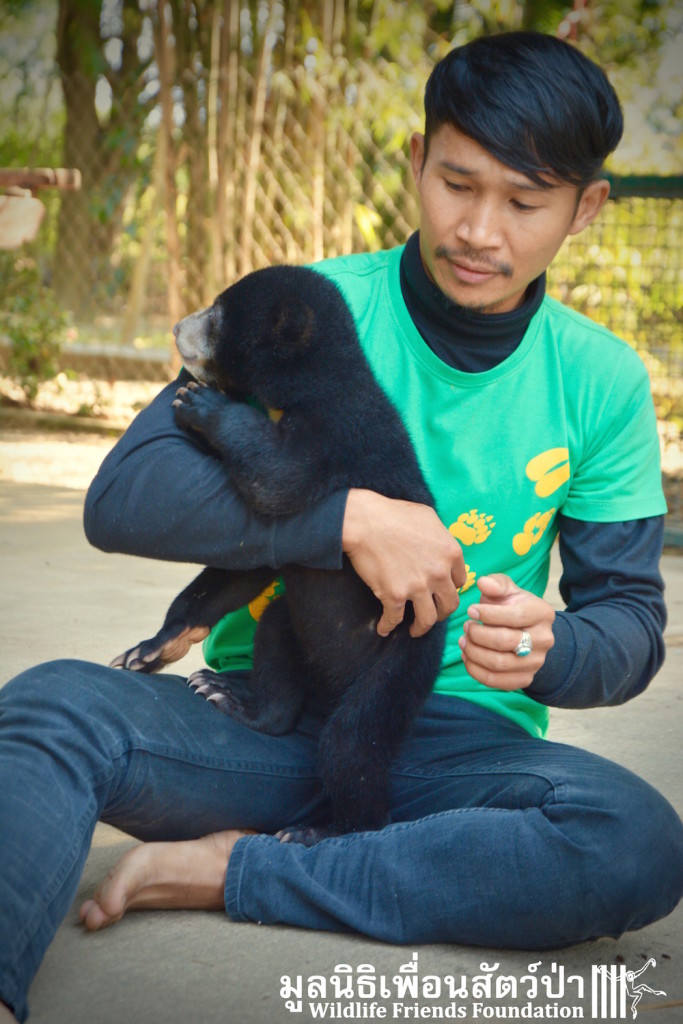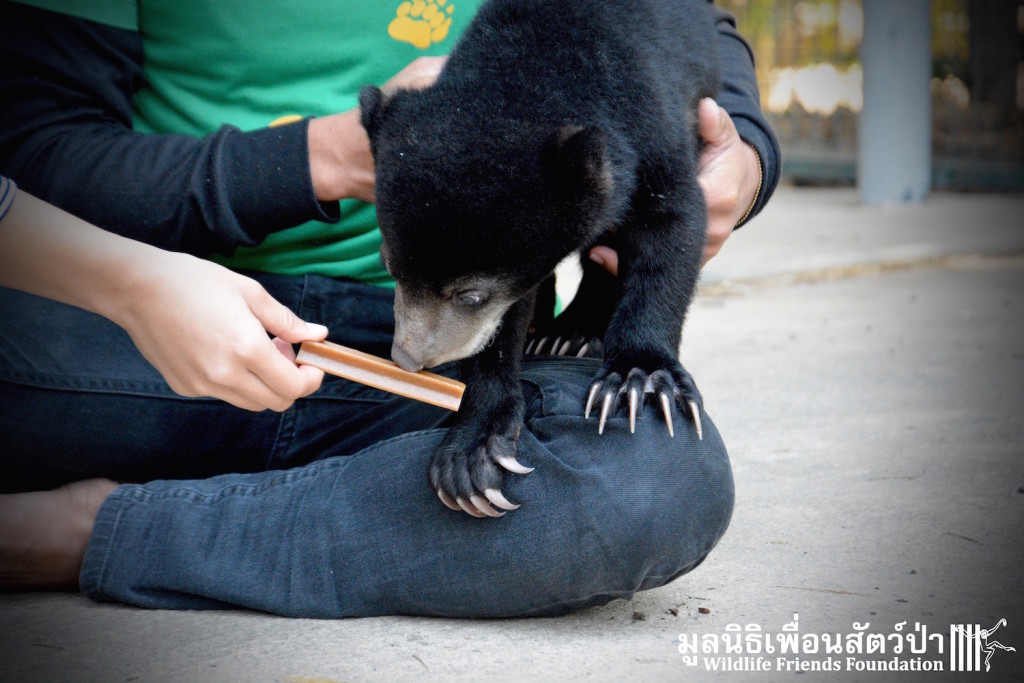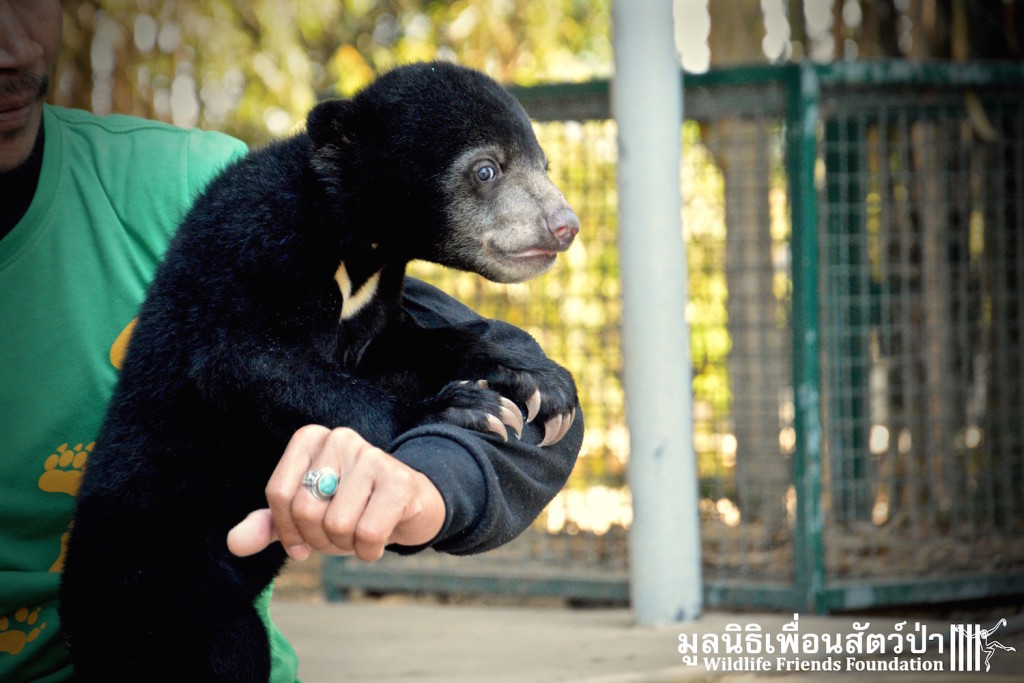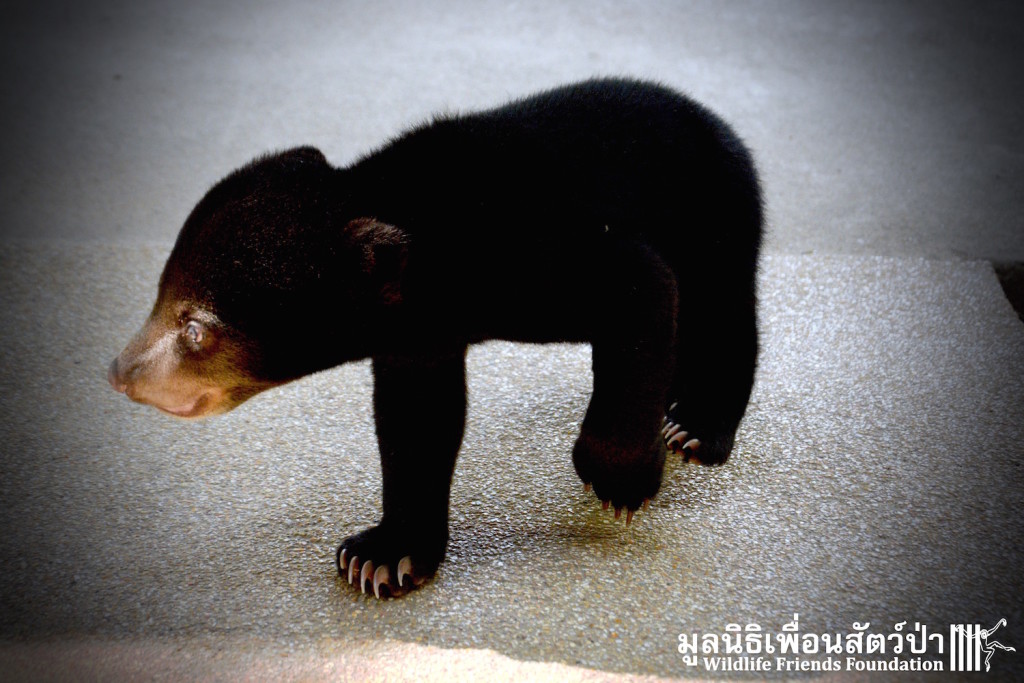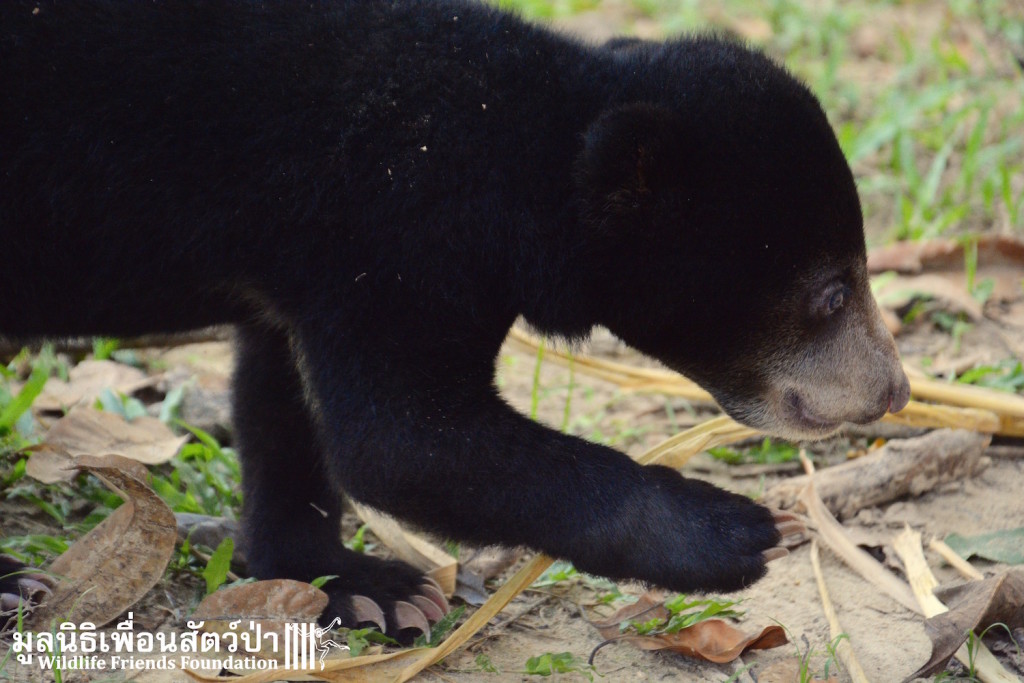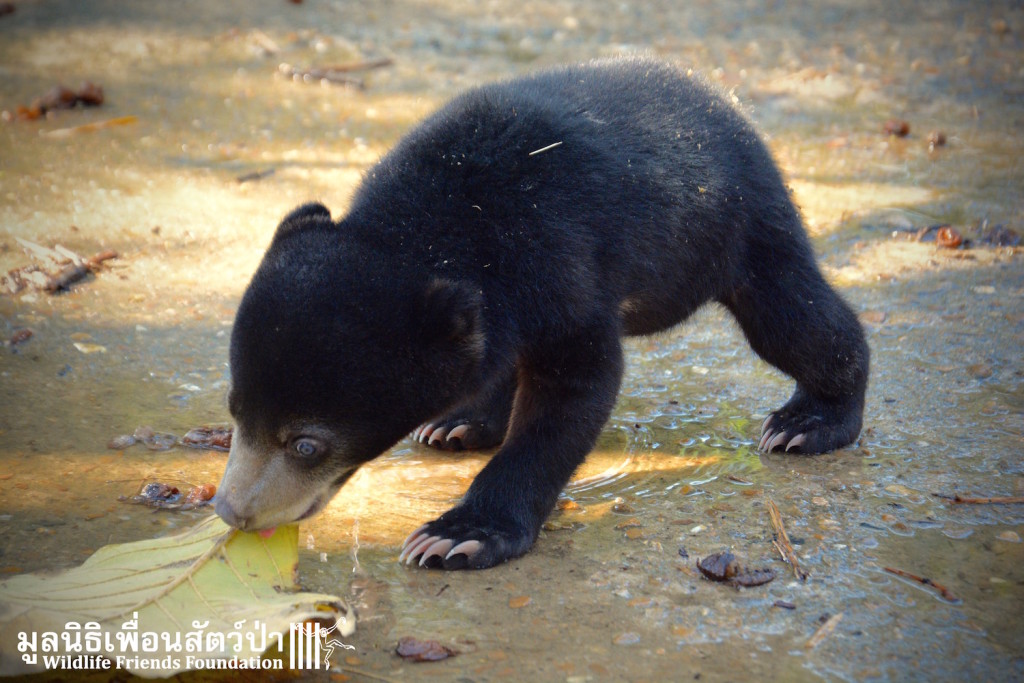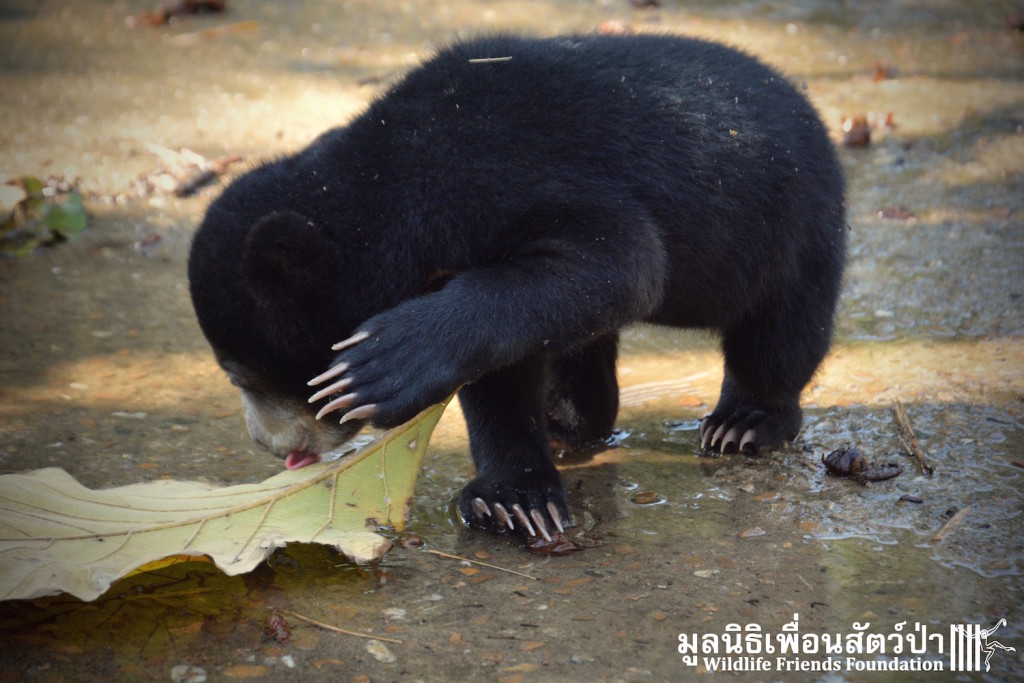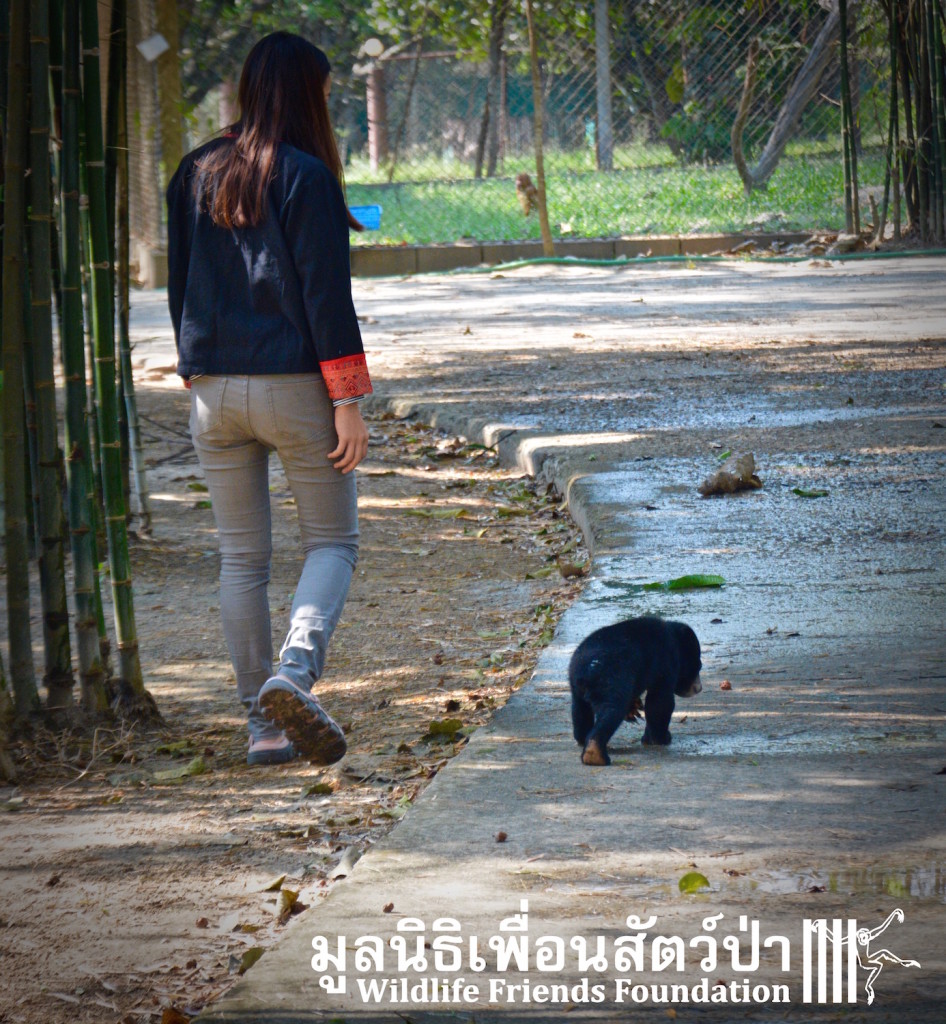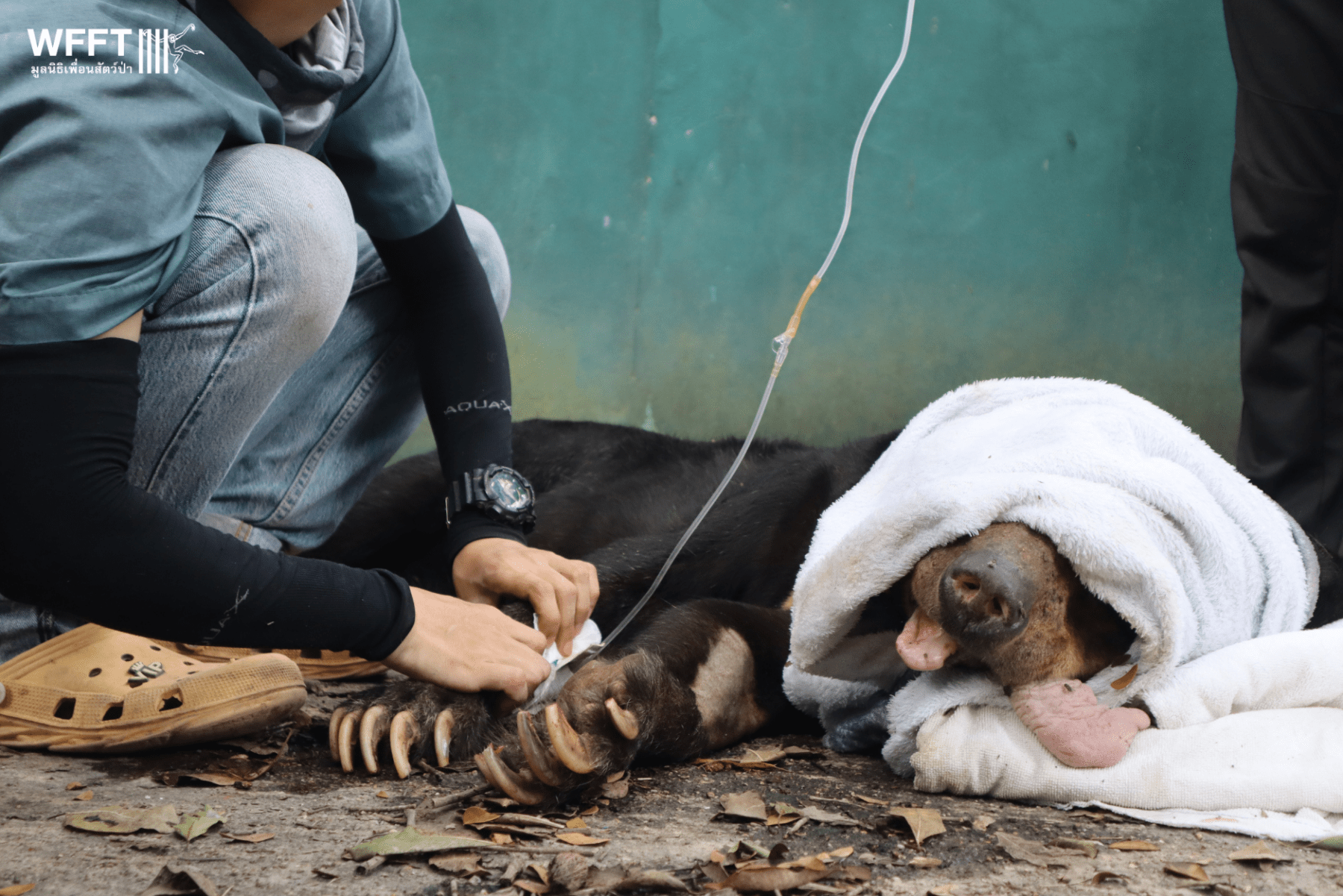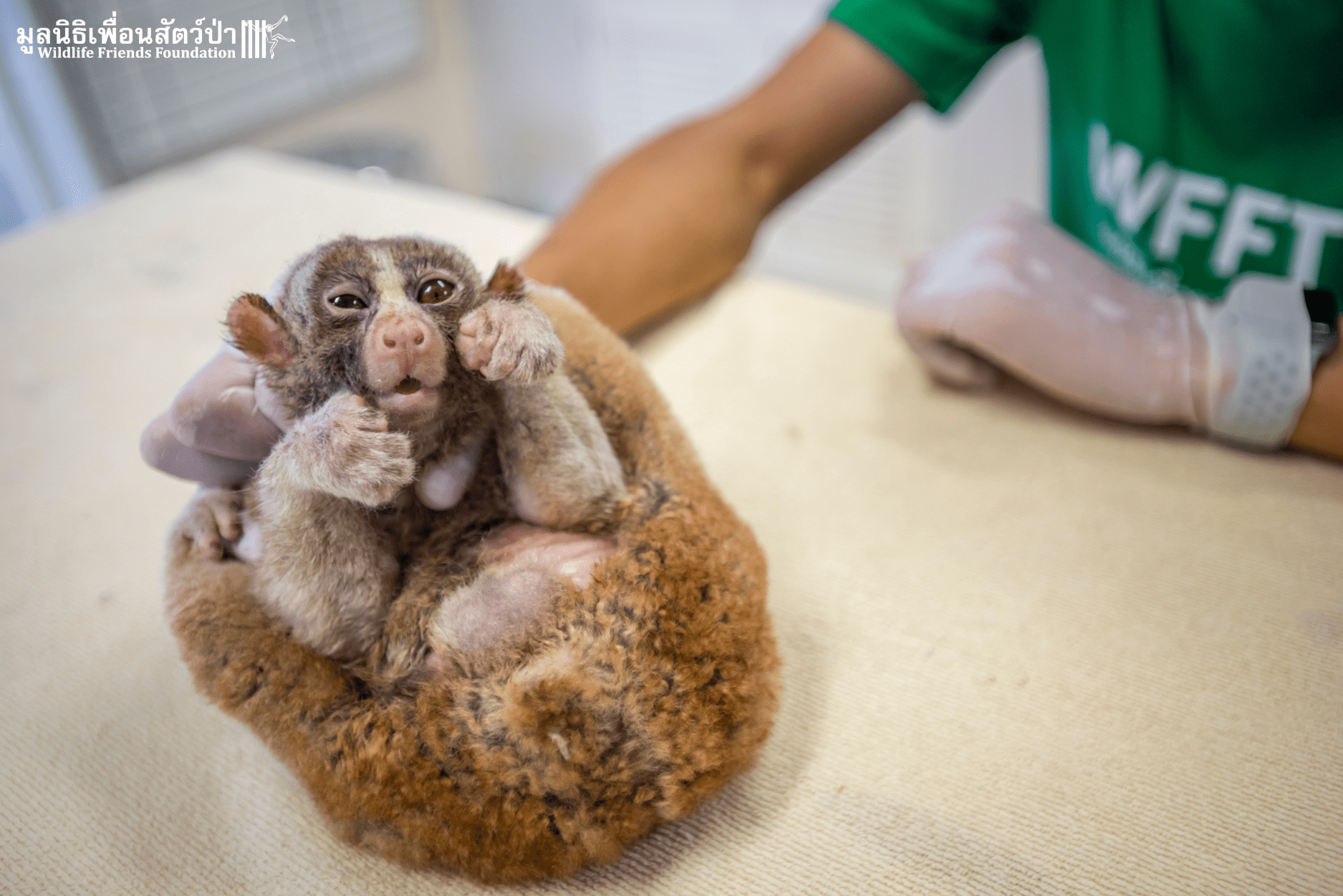A few days ago, Cola was sedated for her 6-monthly vet treatment, during which our team did a routine health check.
Bowie the Baby Bear
Meet ‘Bowie’ the recently rescued Malayan sun bear (Helarctos malayanus). We received a call from a concerned local who had obtained Bowie from a hunter. They called WFFT to help, when the rescue team arrived at the house where she was being held they were shocked to see her squashed in a very small cage almost unable to move, with a tight rope around her neck further restricting her movement.
The IUCN Red List of Threatened Species lists Malayan sun bears as Vulnerable (VU). The two major threats to sun bears are habitat loss and commercial hunting, given their dependence on forest habitats, it is clear that the large-scale deforestation that has occurred throughout Southeast Asia over the past three decades has dramatically reduced suitable habitat for this species. Numbers have been reduced by uncontrolled exploitation for live animals and body parts. It is expected that commercial exploitation will continue during the next 30 years unless abated by the implementation of significant anti-poaching measures. Commercial poaching of bears for the wildlife trade is a considerable threat in most countries, and is the main threat where deforestation is currently negligible (for example in Thailand where nearly all remaining forest is within protected areas. Killing bears is illegal in all range countries but is largely uncontrolled. In Thailand, local hunters in one area estimated that commercial poaching reduced the abundance of sun bears by 50% in 20 years.
In Myanmar, Thailand, Lao PDR, Cambodia and Viet Nam, sun bears are commonly poached for their gall bladders and bear-paws; the former is used as a Traditional Chinese Medicine, and the latter as an expensive delicacy. Both sun bears and Asiatic black bears are farmed in Viet Nam, in small private enterprises. Bears are routinely removed from the wild to stock or restock these small farms. Other motivations for killing sun bears include: preventing damage to crops, subsistence use, fear of bears near villages, and capture of cubs for pets (the mother being killed in the process).
The little baby Bowie was transferred to the WFFT Wildlife Hospital and given a check up. She is currently in the hospital receiving special care from the WFFT Vet Team as she is still very young. We estimate that Bowie is around 4 or 5 months old. At this time she would still be highly dependent on her mother, still drinking milk and following her mothers every move. Bowie enjoys her daily walks with the vet team. When she grows up we hope to introduce her to one of our groups of sun bears in a large open field area, giving her the space she deserves.

